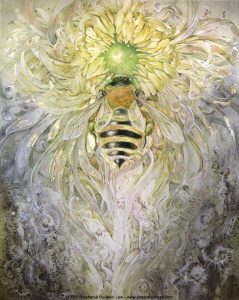This month our Moving into Meditation class is studying the Yoga Ethic of Brahmacharya. Here are some of the resources we used in this morning’s practice of guided relaxation, mindful movement and sitting meditation.
The inspiration for our guided relaxation comes from teacher and social activist Michael Stone and poet and spoken word artist Ben Bushill. You can hear more of Ben’s work on YouTube or read his poems in his book: I Choose to Believe in Magic.
Guided Relaxation
Welcome . . . to this present moment . . . as you feel your breathing . . . you extend a welcome to each breath . . . receiving and releasing . . . taking in and giving out . . . each mindful breath . . . an affirmation of your intimacy with all beings . . . . Feeling breathing nourishing you . . . and then feeling the outflowing breath affirming the life of other beings . . . Poet Ben Bushill writes remembering “that the breath in you is also within me. . . . “ Remembering “that you never once took a breath, not once in your life, that each and every one is all given to you. It is all given to you.”
We come here to remember . . . ”Gently remember, one cell at a time, that being here is all there is. Being here is the gift we’ve longed for. Being here is its own reward. Existence is its own reward. Existence is its own reward. Enlightenment is, and is not something to become.” This is the realization of Brahmacharya.
brahma-carya pratiṣṭhāyāṁ vīrya-lābhaḥ
“Devoted to living a balanced and moderate life (Brahmacharya), the scope of one’s life force become boundless”. Nischala Joy Devi
The intentional practice of Brahmacharya, mindfulness, turns the mind inward, balances the senses, and leads to freedom from dependencies and cravings. On this middle path – this path of mindfulness – we learn to affirm and feel the fullness of life. When we truly realize all is given to us, our mindfulness practice becomes a heartfulness practice in which we can practice moderation.
We bring our attention to feeling our breath . . . perhaps in the belly . . . or at the nostrils . . . like a bee circling around a flower again and again . . . our attention comes and goes . . . and then over time it rests . . . like the bee going right into the flower and staying there . . . we stay with what we’re experiencing . . . allowing all the habitual patterns of personality to be . . . as we going to feeling our breath . . . we’re pollinating fields of awareness . . .
As in the practice of Brahmacharya, we cultivate the conditions in which we need only open and allow life to flow through us . . . Our process is to balance and calm in relation to what is going on so we can de-escalate rising tensions within and around us. This is a great training for human being . . . and its constellations of relationships that grow as we mature through life: childhood, adolescence, befriending, betrothing, parenting and then letting go.
As we rest in the flower of calm abiding we pay attention and then we pay attention to how we’re paying attention – the subjective experience of paying attention. How attention waivers with changing conditions – our attitude – our assumptions – our expectations. Right now we can pause and reflect on the underlying attitude, assumptions, expectations that we bring to our cushions. How do these forces affect our attention? One day we believe ourselves to be great meditators, balanced, principled people . . . another day we can’t find our center, we find fault and weakness at every turn.
In his podcast Aim and Allow: How Mindfulness of Breathing Helps Us Manage Expectations, teacher and writer, Michael Stone, says that: “By definition an open mind is an unassuming mind, it’s a beginner’s mind. . . . Here we’re trying to cultivate . . . a beginner’s mind to . . . [our] moment to moment experience.” Beginning to . . . “notice when you’re paying attention to your breath . . . [and recognize] . . . how much you spend your time wanting things to be a certain way . . . “
Michael suggests that this can happen throughout the whole meditation practice – meditation is a way of learning how to tolerate frustration. . . . And “. . . living through this lens of expectation can really limit what can happen and what is happening. . . sometimes there are blessings all over the place that we miss because of our expectations. Our window is just too narrow. So when you’re sitting try and trust the process and be present with what’s happening. This is useful in life too, to learn to what it’s like to let go of expectation in the moment, fast, coming back to the breath.” Coming into the new now . . . the new now . . . again and again.
We go one breath at a time. We learn to distinguish between pain and the fear of pain. We begin to see through the fog of anxiety and detangle our expectation of pain from pain itself. . . . “ if you go one breath at a time, you can just aim for this moment and allow this moment to unfold.” You can begin to see the disparity between your ideas about how things are and the actual conditions as they arise moment to moment.
Michael observes . . . “ if we have a lot of over-involvement . . . preoccupation or expectation, then we’re not here. The same is true when we relate to people. We need to drop our expectations of how we think they should be. . . . So here’s my suggestion to you. Expect anything. Flip it around. Expect anything to happen at any time. So that our training, is a training to learn how to respond to anything. . . .
How do you do that? You have to track your thinking when you’re meditating. You have to track your thinking enough to know when expectation is there and then aim for your body again. You don’t have to analyze your expectations. You don’t have to study the content of them. You can just say – do I need to be thinking about this right now? And take some power out of your thoughts. . . .”
This is the treasure of Brahmacharya – cultivating balance and moderation, breath by breath. “We don’t necessarily have to figure out why we have the expectations we have, why we can’t stay connected to the breath, over and over, we just keep staying with the practice. Staying with the practice and learning the practice so our practice becomes our teacher.”
Michael suggests “ . . . one helpful way of beginning to get closer to this experience of breathing in and breathing out. Is a practice [he] call[s] Aim and Allow. . . . Aim your attention at the anchor and then you allow. If the anchor is your breathing, you allow breathing to harmonize with what is there. . . . ”
We practice because we want to help. We practice for the benefit of future generations.
 The following is a transcript of Ben Bushill’s recent spoken word piece, Let’s Meet As If We Remember,” which I found on Facebook. I think it speaks to the essence of where we are aiming our hearts:
The following is a transcript of Ben Bushill’s recent spoken word piece, Let’s Meet As If We Remember,” which I found on Facebook. I think it speaks to the essence of where we are aiming our hearts:
Let’s meet as if we remember.
That we remember that we all grew from love seed.
Newborn and soft. Innocent and new.
Diving into this. Into this rainbow sea. Into this rainbow sea.
From a land far beyond. Beyond, beyond, beyond.
Let’s look at each other and remember, that the breath in you is also within me. Let’s remember that you never once took a breath, not once in your life,
that each and every one is all given to you. It is all given to you.
Let’s speak to each other and remember that your lips form to shape the space around you. And that pure heart truth is born on your tongue. And when words arise that deep intimate heart you carry can be heard by those who know how to listen.
So let’s listen to each other, and to the birds and to the sound of forest growing and the waves swelling. Let’s listen to the great cord of love which arises like a mountain beyond all things. Honest and eternal. Honest and eternal.
Let’s listen to the great cord of love which rises like a mountain which arises beyond all things. Honest and eternal. Honest and eternal.
Let’s touch each other with respect and love for that beneath your fingers is straight from the forge of god. And there will never be a miracle quite like the one you hold in your intricate perfect, holy hands.
Let’s dance with each other. Lie beneath the moon together. Gaze up at the sun together and remember. Remember that within us there are planets and fires and suns waters and rocks and mountains and remember that the very essence of you is mercy. The very essence of you is mercy. And the whole mandala of universe is woven from that same thread. The whole mandala of universe is woven from that same thread – the thread of which you are made.
We need not be great. We need not be great. We need not save this world or another. We need only remember. Gently remember, one cell at a time, that being here is all there is. Being here is the gift we’ve longed for. Being here is its own reward. Existence is its own reward. Existence is its own reward. Enlightenment is, and is not something to become.
So we are beings of light. We are beings of light and our eyes already open. We need only remember to see as children see. See as children see and rest, like bears rest on the forest floor, dreaming that droplets of silver water that we are perfect and complete. Perfect and complete. Forever unique in the spray of stars and laughter that is our home. Let’s meet as if we remember.

